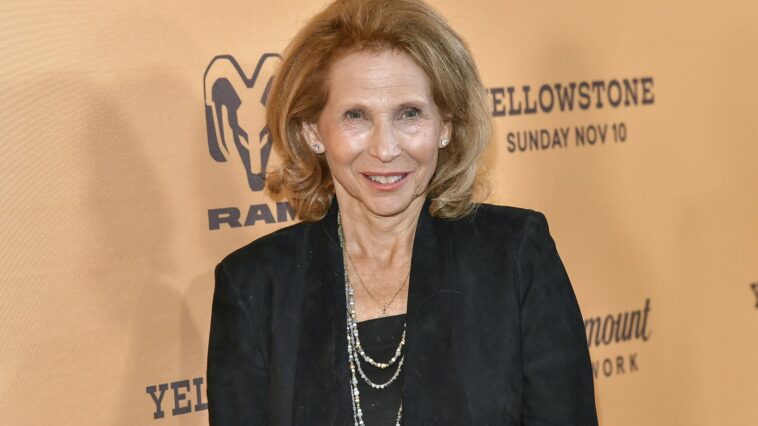In an astounding turn of events, Paramount Global and the former U.S. President, Donald Trump, are dancing around in the legal battlefield. The backstory involves a pivotal lawsuit Trump launched against CBS News. The bone of contention? A biased representation of an interview with Kamala Harris, the former Vice President, the proceeds from which could net Trump a whopping $20 million settlement, as recommended by a mediator.
Under this staggering proposal, a $17 million allotment would be funneled into Trump’s presidential foundation or museum. Furthermore, this settlement would account for a gargantuan sum in legal fees and public service announcements on Paramount-owned channels to combat antisemitism—a cause that seems more politically convenient than a genuine moral stand.
In October, the Trump legal machine initiated a monumental $10 billion lawsuit against CBS, fueling political chaos. Trump’s grievance was couched in the accusation that CBS deviously manipulated a ’60 Minutes’ interview with Harris, who was then wearing the hat of vice president and presidential candidate. This strategic edit, according to Trump, skewed the democratic balance in favor of her party during the critical election period.
Trump didn’t stop there, though. In February, he piled onto his earlier claims and inflated the damages to an astronomical $20 billion—are his histrionics indicating desperation or, perhaps, underlining the severity of CBS’s alleged foul play? His opponents, including Harris, paint him as a bitter player unable to swallow defeat with grace. As always, Trump’s actions keep spectators guessing.
On the negotiation front, the stakes are dynamic and fiercely contested. There’s no consensus in sight, with both sides clinging stubbornly to their positions. Paramount tried to throw in the towel in May with a counter-offer of $15 million to resolve the conflict, but Trump’s team wasn’t biting. They shot back, asking for over $25 million and a public apology from CBS News—an act of penance for the supposed political slander.
Paramount didn’t step into the mediation process until April, anticipating an opportunity to bury the hatchet. Their assumed hope was that this legal tussle would dissipate, allowing them to move forth without dragging along the cumbersome baggage of litigation.
Financial pundits are viewing this lawsuit as a significant impediment blocking Paramount’s path. They stand at the precipice of a tremendous business milestone — an $8.4 billion merger with Skydance Media. This monumental step, though, is conditional upon a green light from the U.S. Federal Communications Commission.
Yet the lawsuit hangs like a sword above Paramount’s head, potentially jeopardizing their long-awaited merger. Trump’s team is exerting pressure not just for financial gain, but also as an attempt to tarnish CBS’s image, possibly related to the skewed representation of Kamala Harris. If the proceedings tilt in Trump’s favor, the political implications might echo far beyond the boundaries of the courtroom.
In a twisted turn of irony, Paramount’s involvement in the controversy might inadvertently cement Harris’s position. Their alleged depiction of her in a favorable light, albeit seen as a manipulation by Trump, potentially pulled more Democratic support under her wings. If these allegations solidify, it will further showcase mainstream media’s penchant for swaying public opinion covertly.
All this demonstrates how Paramount, in a bizarre twist of events, comes under the spotlight for distributing what Trump purports to be politically skewed content. While they probably never envisioned getting entangled in such a political kerfuffle, they now find themselves at the center of a critical narrative—one that paradoxically could put Harris in a better, albeit controversial, position.
One can’t help but consider this lawsuit as a strategic move by Trump. The demands for financial reparation along with a public apology could be interpreted as not merely vindictive but reflective of a broader strategy to undermine the media’s projection of Democratic leaders like Harris.
As such, the lawsuit can be read as a deliberate play to stir up controversy and throw clouds of suspicion over Harris’s image. This, ultimately, could bear significant implications not only for Paramount’s legal and corporate standing but the political landscape at large.
The entire scenario raises pertinent questions about the role of media transparency and responsible journalism. Can media outlets like CBS remain unbiased, as they should in an ideal democratic society, or are they falling into the baited traps of political bias?
In the end, public scrutiny and time will dictate the final outcomes. The $20 million question will remain hanging: Was CBS’s portrayal of Kamala Harris truly deceptive, or is this another complex layer in Trump’s relentless pursuit to taint her reputation and, by extension, her party? These proceedings offer a sobering backdrop to the unsettling landscape of modern media, politics, and the closely intertwined lives of their players.

